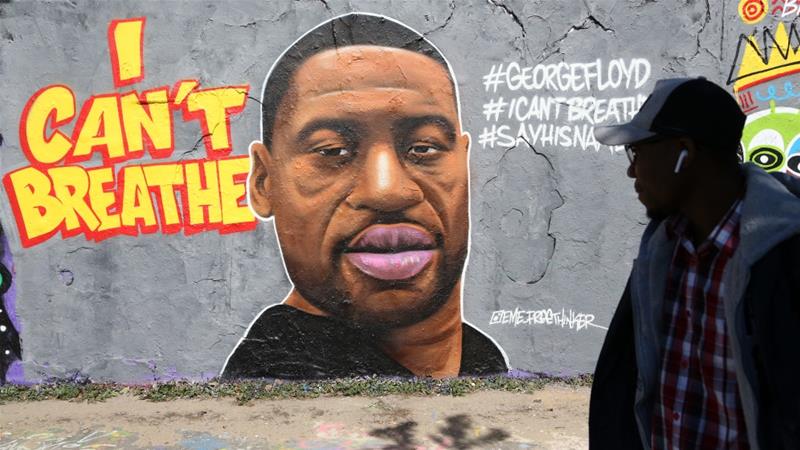
04 Jun HIs name is George floyd
I could not bring myself to watch the murder of George Floyd. I am still at a loss for words. I am a white man. I am well-educate and hold two professional licenses. There is no doubt I have benefited from the systemic oppression of black, indigenous and people of color (BIPOC). But, in all honestly, I rarely think about that fact. Instead, I like to pretend I earned my place in society solely through hard work and perseverance while ignoring the system is slanted heavily toward individuals like me. Unfortunately, it pains me to admit that it takes the murder of an innocent black man for me to take notice. But, even then, my response is one of helplessness and befuddlement. And, while it pains me to say this, my disgust will likely be overtaken by the vicissitudes of my own life. This is the very definition of white privilege. I need to do better, to be better.
I can never understand what it is like to be black, but I want to share an experience that gave me a fleeting glimpse of being an outsider. Many moons ago, sometime before the 2008 election, I was a delegate for Hillary Clinton. I believed we needed a woman president (something I still believe) and that she had the political capital to reform our healthcare system. Barack Obama was, in my mind, a relative political neophyte who would not be able to effect change. Now, I am questioning the privilege in my assessment, but while important, that is somewhat of a digression. As a delegate, I was required to be at the local caucus. At that time, I was living in a predominantly black neighborhood in northeast Houston. The caucus was being held at a local Southern Baptist church in the area.
I arrived at the church and parked my car. I got out of the vehicle and was greeted warmly. Although I had only anticipated being at the event for a short period of time, there was some glitch in the Matrix that required us to wait for a substantial period of time at the church. We were requested to take a seat in the sanctuary. There were several hundred individuals present and packed into the tiny church. I was the only white person in the whole building. For the first time in my life, I felt like an outsider because of my skin color. I started asking myself questions like: Was everyone looking at me? Were they wondering what I was doing there? What is everyone thinking about me? But, never once did I feel unsafe. The other delegates were warm and welcoming, even going out of their way to make me feel comfortable.
When I think about my black friends and colleagues, I cannot help but wonder what it would feel like to experience not only a sense of being on the outside, but to fear for my safety at all times. I have never once been scared I would be physically assaulted by the police. In fact, when my car was stolen nights ago, I did not hesitate to call them out. Because I am a professional white man, I expected nothing but professionalism from the police. And, if the officers were anything less than that, I would not have hesitated in pushing back and giving them hell. Black people do not have that luxury. I understand this, but it is not my reality. Again, that is the definition of privilege. I empathize with those who do not have the advantages I have, the ability to stand up for myself without fear of immediate retribution.
I do not have the answers and talk is cheap. To my white friends, I would ask you open your ears and close your mouths when needed. We have a tendency to want to help, but our perspective is skewed and only tends to entrenches oppression. I believe our place is to listen to BIPOC and do what we can to change not only ourselves but the oppressive system we are in. In all honesty, there is a part of me that wants that system to be burned to the ground, both figuratively and literally. Our great country was built on the blood, sweat and tears of enslaved individuals. While the practice of slavery was ended, its legacy still dominates our culture. Rioting and revolution is the language of the oppressed – the one language white people most assuredly will hear. We really need to listen to those voices and be willing to sacrifice our privilege to cause real cultural and systemic change.
I hear many of my white friends expressing pain and frustration about the death of George Floyd. I feel it too. But, what if the pain you feel today was your everyday reality? Imagine you felt obligated to have regular conversations with your kid on how to modify their behavior to avoid being assaulted or killed by the police. Consider what it would feel like if you walked into a store and were followed by staff or security simply because of the color of your skin. Think what it would be like if others asked you to speak on behalf of your entire race or to educate them on how to be less oppressive. Maybe if we answer these questions and a million others like them, we could feel a fraction of what it is like to be black in America. Think on that for more than a minute or two.



Sorry, the comment form is closed at this time.